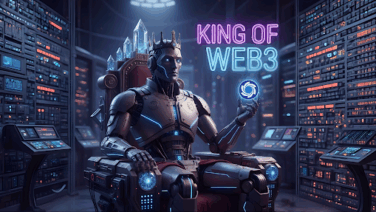Pantos, a multichain token system created by the Bitpanda team, today announced the public beta launch of its multichain protocol. The public beta will soon allow users and developers to effortlessly generate and deploy multichain tokens with just a few clicks, wrap native coins of supported chains, and transfer tokens.
PANDAS (Pantos Digital Asset Standard), a new Multichain Token Standard from Pantos, enables safe and smooth Web3 interoperability by bringing a genuinely multichain token system to the public. On the testnet, Pantos presently supports seven chains: Ethereum, Polygon, Avalanche, BNB, Cronos, Celo, and Fantom. It also has ambitions to gradually include other EVM and non-EVM chains.
The bulk of Web3 apps and bridges available today lack the user-friendly interface and security that would enable widespread adoption of Web3 functionality. By providing a solid infrastructure and the appropriate tools, Pantos intends to let developers quickly build multichain assets.
In order to create an open standard for genuinely decentralized multichain token transfers and blockchain interoperability, Bitpanda launched Pantos in 2018 as an internal research project in conjunction with TU Wien (Austria) and eventually also TU Hamburg (Germany). After years of groundbreaking research in the areas of oracles, relays, smart contracts, and blockchain effectiveness, the public beta is now available. As part of the Christian Doppler Laboratory Blockchain Technologies for the Internet of Things, Pantos and its researchers at the universities operate one of the biggest blockchain research laboratories in the world. The Austrian government has provided funding for the initiative.
Eric Demuth, CEO and Co-Founder of both Pantos and Bitpanda, said “We are thrilled to introduce the public beta after years of research in collaboration with some of the most reputed universities in Europe. We believe that Multichain technology will be a catalyst for Web3 and foster widespread crypto adoption. Pantos offers users the simplest way to access a multichain Web3.”
Bitpanda’s corporate expertise aids Pantos in making the transition from a research project to a fully-functional solution that is easily and readily available to developers and end customers. Additionally, Bitpanda will be among the first to use Pantos’ multichain token system. Additionally, Pantos has established a collaboration with Raiffeisen Bank International (RBI), the leading bank in Austria, to collaborate on blockchain interoperability solutions. PAN, the native token of Pantos, can presently be traded on Bitpanda and N26.
The technology that Pantos researchers are developing will enable users to freely transfer digital assets of any sort across various blockchain protocols in a totally decentralized and trustless way. Developers will be able to deploy assets on several blockchains without doing any maintenance work using the new PANDAS-20 standard. Users and digital artists who are interested but lack coding abilities will be able to easily install their own multichain tokens.
Despite having PAN as its own gas token and ultimately aiming to become a completely decentralized open-source protocol, Pantos’ public beta includes a reliable validation system to guarantee a successful launch. By doing this, the team will make sure that the network cannot be attacked while it is still in its early stages and before it progressively develops into a completely decentralized system.








